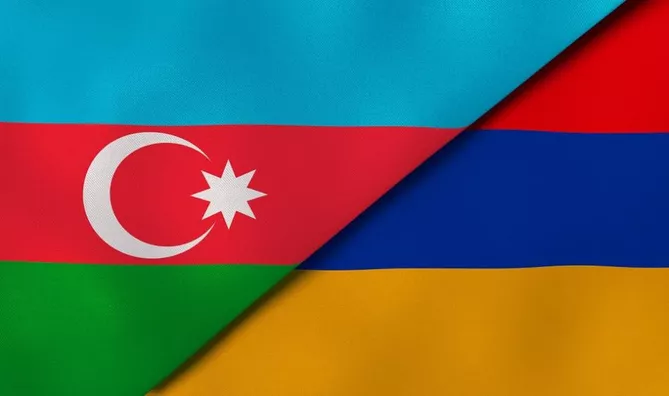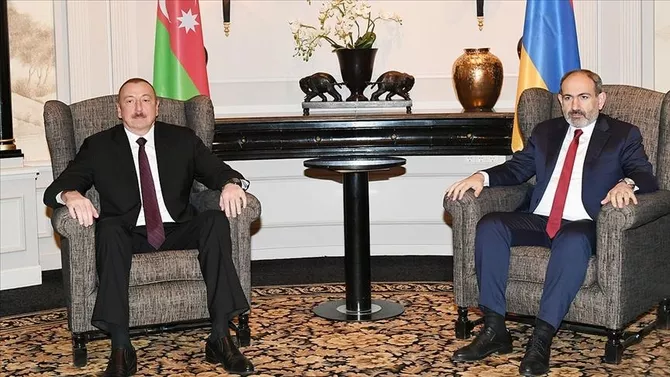
Although more than three weeks have passed since the historic bilateral meeting between the leaders of Azerbaijan and Armenia without the participation of mediators, this event remains at the center of international diplomacy. Its significance goes far beyond the regional context, attracting close attention from analysts around the world. In a recent interview with The Caspian Post, Kyrgyz expert, political commentator, and economist Marat Musuraliev expressed optimism about the ongoing peace talks between Azerbaijan and Armenia, suggesting that the two sides could reach real, concrete results within the coming months.
- How do you assess the configuration of the recent direct negotiations at the leadership level between Azerbaijan and Armenia? Can it be called a sustainable trend in regional diplomacy, or are we witnessing only a tactical episode on the long and winding road to stability?
- First of all, the very fact of a direct meeting, without mediators and on neutral territory, inspires cautious optimism. The United Arab Emirates, in this case, acted not only as a country geographically and politically distant from South Caucasus turbulence but also as a truly neutral mediator in the best sense of the word. This is not a country that offered to deploy its troops under the guise of peacekeepers. This is not a player that traded arms and provided one-sided military support. And that is already important.
Equally important is that the parties decided to speak face to face - without the intrusive presence of third parties, which often mask their real geopolitical ambitions behind the façade of "peacekeeping." The very architecture of this dialogue - working groups, subject-matter experts, discussions on specific and tangible topics such as border delimitation and transport communications - demonstrates a mature approach. The issue of trust remains acute after more than three decades of confrontation. Therefore, any dialogue requires pinpoint precision, both diplomatically and in terms of information.
There is another nuance: while the Azerbaijani authorities control the internal situation fairly steadily, the political landscape in Armenia remains volatile. Any even interim, albeit mutually beneficial, result can be portrayed by the opposition in Yerevan as a concession or defeat. This makes the negotiation process not only delicate but vulnerable to external and internal shocks.

- How realistic is it that Armenia and Azerbaijan can, in the foreseeable future, implement an official and lasting peace through border unblocking and mutual infrastructure integration? Can we talk about a renaissance of transport logistics in the South Caucasus, and what economic effects could this bring not only to Baku and Yerevan but also to the Central Asian countries, including Kyrgyzstan?
- Today, there is growing hope that when the technical working groups finally reach an agreement, their groundwork will not remain in the shadows but will be brought to the level of political leadership and openly, honestly, and trustfully discussed in parliaments. So that the peoples of the two countries can look each other in the eye and say: yes, this is truly a win-win - a mutual victory where there are no losers.
Unblocking borders, launching infrastructure projects, and reviving railway routes that were only dreamed of in Soviet times - all this can transform the South Caucasus. Back then, during the planned economy era, a project was considered for a direct railway from northeastern Armenia toward Ganja, bypassing Georgia. That route remained only on paper, but history tends to return - if not in a spiral, then at least along steel rails.
As for Azerbaijan, a key condition remains a land route to Nakhchivan. Personally, I do not care what it is called - "road," "route," "transport hub" - it may not even be worth frequently using the word "corridor" now, so as not to corner the parties into political traps. The main thing is that this route exists - reliable, recognized, and safe.
If the experts of the two countries continue direct dialogue without unnecessary interference from third parties, and if there is sufficient political will, the result could come not in years, but in a matter of months. What matters most is movement and direction.
Moreover, the legal foundation was laid more than thirty years ago: in the Almaty Declaration of 1991, when the former Soviet republics unanimously enshrined the principle of respecting each other's territorial integrity.

- Given all these circumstances, how do you assess the prospects for Armenia’s transport and economic reorientation toward Türkiye and Western countries? How realistic is this in terms of economic logic and the geopolitical balance in the region?
- First and foremost, it is necessary to recall a key circumstance that laid the foundation for the modern geopolitical reality of the South Caucasus. Back in the early 1990s, the United Nations Security Council adopted a number of resolutions that clearly and unequivocally demanded the liberation of the occupied territories of the Republic of Azerbaijan. These documents, which have binding legal force, confirmed the international recognition of Azerbaijan’s sovereignty and territorial integrity. However, despite the weight and authority of these decisions, they were not implemented over decades of diplomatic efforts. International mediators limited themselves to statements about the "need for dialogue," while the de facto status quo persisted.
Against this backdrop, 2020 became a turning point in the region’s history. In the face of the inaction of global institutions, Azerbaijan, guided by the norms of international law and relying on the provisions of the UN Charter, was forced to independently restore its territorial integrity. This decision was a compelled response to decades of occupation and sabotage of the negotiation process. Nevertheless, even then Baku demonstrated political maturity and commitment to a peaceful settlement of the conflict: active hostilities were stopped on November 9, 2020, and the Armenian side was given the opportunity to voluntarily withdraw its forces from the remaining territories during the following month. This clearly demonstrates Azerbaijan’s strategic desire to minimize escalation and complete the process of liberating its lands with maximum consideration of humanitarian and political factors.
As for Armenia, its strategic position and potential for regional integration today are largely constrained by objective and infrastructural circumstances. To the north, toward Georgia, there are serious obstacles: rail service through Abkhazia remains blocked, and road transport faces technical and economic limitations, including high costs and freight limits. The alternative of multimodal routes through Georgian ports such as Poti and Batumi involves additional logistical costs, reducing the competitiveness of Armenian exports.
In this regard, the most rational and economically justified direction remains the transport corridor through Türkiye. The existing rail connection to Kars and further access to the European gauge opens a window for Armenia into global markets, connecting its economy with the developed transport arteries of Eurasia. This route has real potential for diversifying foreign economic ties and reducing dependence on transit intermediaries.
Therefore, from a geopolitical and geoeconomic perspective, Armenia is increasingly raising the question of revising its foreign policy priorities, including the appropriateness of further participation in the CSTO, against the backdrop of the changing architecture of international security. Such a turn, despite its ambiguity for outside observers, should be viewed as an expression of the sovereign will of the Armenian state. Independence in choosing alliances and strategic development vectors is an inalienable right of any member of the international community. And if Yerevan is now seeking new footholds in the system of regional security and economic cooperation, this reflects not only internal political transformation but also a desire to adapt to a rapidly changing world.
Thus, the events of recent years confirm an important conclusion: stability and prosperity in the South Caucasus depend on the ability of the countries of the region to act within the framework of international law, guided by the interests of development, mutual integration, and respect for state sovereignty.
Share on social media